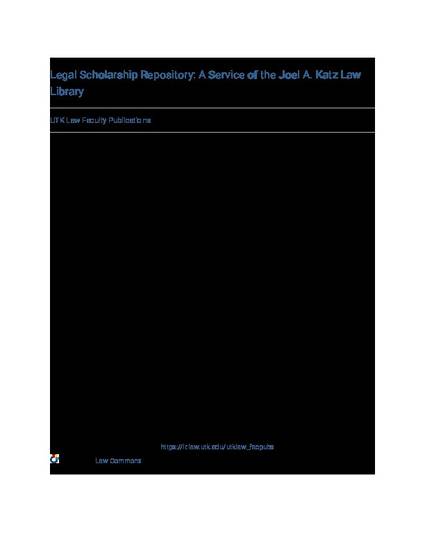
Article
Is Intent Relevant?
Journal of Law, Economics & Policy
(2012)
Abstract
The role of intent in federal antitrust cases has been characterized as “unsettled” and “controversial.” Many lower courts, scholars, and practitioners recognize that intent evidence is relevant in antitrust cases. But jurists and scholars oriented by neoclassical economic theory disagree.
Using the developments in the behavioral economics literature, this Article reexamines the relevancy of intent evidence in civil antitrust cases. The analysis is organized around two issues: First is intent legally relevant in civil antitrust cases? Second if intent evidence is relevant, for what purpose?
Intent evidence, this Article concludes, is relevant. The behavioral economics experiments confirm what many have long accepted: intent matters. Greed does not always motivate us. Greed is not necessary for a market economy to thrive. Competition need not be zero-sum warfare. But the literature has two important implications. First, intent may be helpful, but to a lesser degree than some courts and scholars assume, in assessing the likely anti-competitive effects. Second, intent evidence can be more important than courts may otherwise assume under neoclassical theory. People rely on intent when coding and punishing behavior as unfair and unreasonable, which in turn can promote a market economy and overall societal welfare.
Keywords
- Behavioral Economics,
- Self-Interest,
- Antitrust,
- Monopoly,
- Sherman Act,
- Intent,
- Fairness
Disciplines
Publication Date
Fall 2012
Citation Information
Maurice E Stucke. "Is Intent Relevant?" Journal of Law, Economics & Policy Vol. 8 Iss. 4 (2012) p. 801 - 858 Available at: http://works.bepress.com/maurice_stucke/86/
